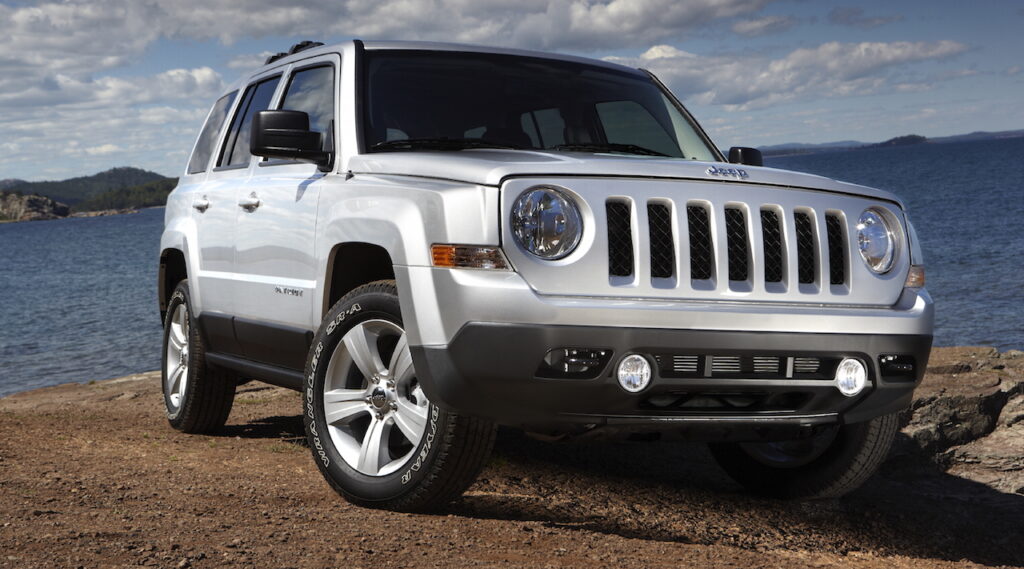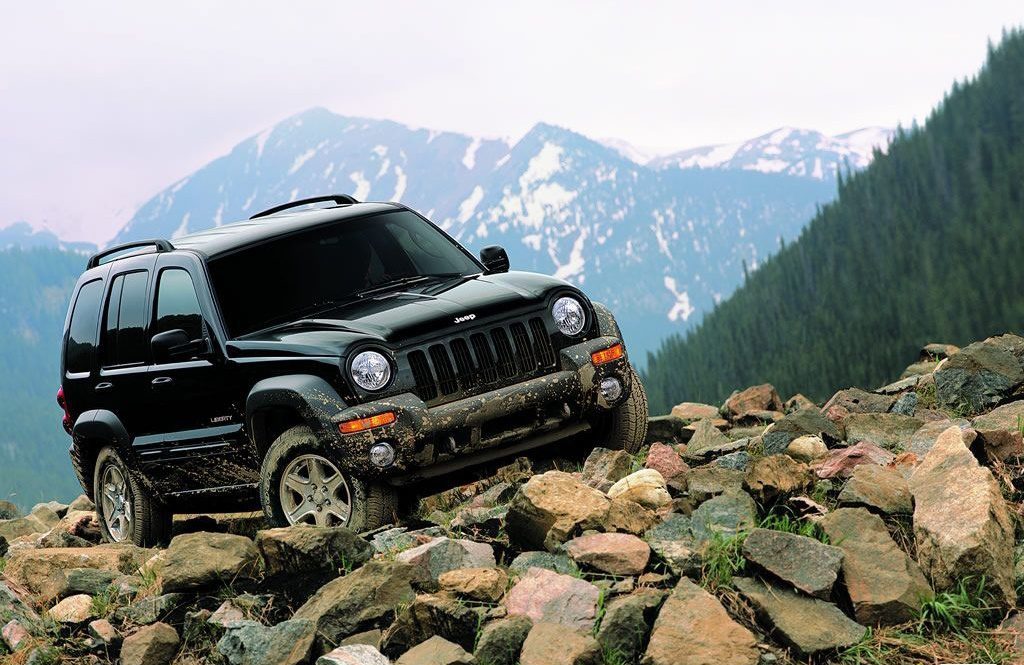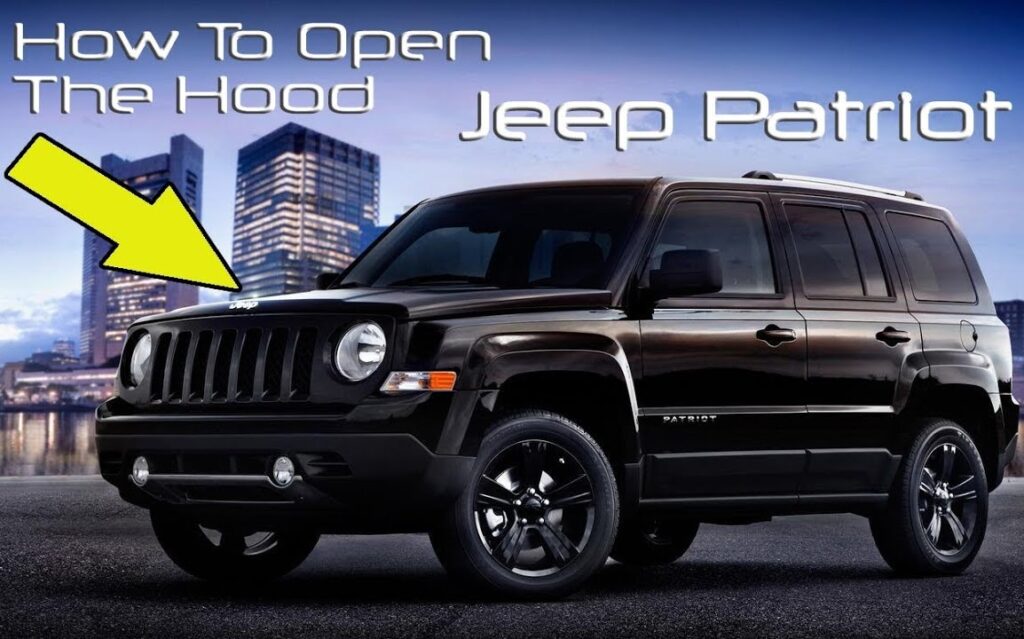The common problems with Jeep Cherokee XJ include transmission issues and electrical problems. The Jeep Cherokee XJ is known for experiencing transmission issues and electrical problems.
These problems can lead to costly repairs and inconvenience for owners. We will explore the common problems owners may encounter with their Jeep Cherokee XJ and discuss potential solutions to these issues. Whether you are a current owner or considering purchasing a used Cherokee XJ, it is essential to be aware of these common problems and take proactive measures to address them.
By understanding these issues, you can make informed decisions about maintaining and repairing your Jeep Cherokee XJ.
Table of Contents
ToggleRust Issues
Undercarriage
Rust can commonly develop on the undercarriage of Jeep Cherokee XJ models.
Body Panels
Another area prone to rust on the Jeep Cherokee XJ is the body panels.

Electrical Problems
Wiring Harness
One common issue in Jeep Cherokee XJ models is the faulty wiring harness, leading to electrical malfunctions.
Alternator
Alternator problems are frequently encountered, causing irregular power supply and issues with the vehicle’s electrical components.
Ignition Switch
The ignition switch can be a source of trouble, often resulting in starting difficulties and electrical failures.
Transmission Troubles
If you drive a Jeep Cherokee XJ, you may encounter transmission troubles. This common issue can cause shifting problems, fluid leaks, or even complete failure, affecting the vehicle’s performance. Regular maintenance and timely repairs are essential to prevent costly transmission issues and ensure a smooth driving experience.
When it comes to the Jeep Cherokee XJ, transmission issues are not uncommon. These problems can arise due to a variety of reasons, ranging from general wear and tear to manufacturing defects. It’s crucial for Cherokee XJ owners to be aware of these transmission troubles so that they can take appropriate action to address them.
Transmission Slippage
If you notice that your Jeep Cherokee XJ’s transmission is slipping, it’s a cause for concern. Transmission slippage occurs when your vehicle’s engine revs up without a corresponding increase in speed. This can happen as you’re driving or when shifting gears. While slippage may be occasional, it can worsen over time if left unattended.
One possible cause of transmission slippage is worn-out or damaged clutch plates. These plates, responsible for transferring power between the engine and transmission, can become worn or burnt, leading to slippage. Additionally, low transmission fluid levels or a faulty torque converter can also contribute to this problem.
Torque Converter
The torque converter is an essential component of the transmission system in a Jeep Cherokee XJ. It allows the engine to continue running even when the vehicle is at a complete stop. However, problems with the torque converter can lead to various transmission issues.
Common torque converter issues include overheating, leaks, and failure to engage or disengage properly. Overheating can occur due to a lack of proper fluid circulation, which can cause the torque converter to malfunction. Leaks, on the other hand, can result in a decrease in fluid pressure, leading to slipping gears and other transmission problems.
If you experience any of these torque converter problems, it’s crucial to seek professional assistance promptly. Ignoring these issues can result in further damage to your Jeep Cherokee XJ’s transmission, potentially leading to costly repairs.
In conclusion, when it comes to the Jeep Cherokee XJ, transmission troubles are not uncommon. Whether it’s transmission slippage or torque converter problems, it’s important to address these issues promptly to avoid further damage and maintain the optimal performance of your vehicle. Regular maintenance, fluid checks, and professional inspections can go a long way in preventing and resolving transmission troubles in your Jeep Cherokee XJ.
Cooling System Failures
When it comes to the Jeep Cherokee XJ, it’s important to be aware of common issues, including cooling system failures. These problems can lead to overheating, which can cause serious damage to the engine if not addressed promptly. In this section, we will dive into two common cooling system failures in the Jeep Cherokee XJ: radiator leaks and water pump malfunctions.
Radiator Leaks
Radiator leaks are a prevalent issue in the Jeep Cherokee XJ. Leakage can occur due to corrosion, wear, and tear, or damage from off-road driving. When the radiator leaks, it leads to a loss of coolant, resulting in overheating of the engine. Identifying and fixing these leaks promptly is essential to prevent significant engine damage.
Water Pump Malfunctions
The water pump is a crucial component of the cooling system in the Jeep Cherokee XJ. Malfunctions in the water pump can lead to inadequate coolant circulation, causing the engine to overheat. Common issues with the water pump include bearing failure, leaks, or impeller damage. Regular inspection and maintenance of the water pump are essential to prevent overheating and potential engine damage.

Suspension And Steering Issues
Death Wobble
One common suspension issue faced by Jeep Cherokee XJ owners is the phenomenon known as the “death wobble.” This terrifying shaking of the entire vehicle typically occurs at higher speeds and can be caused by various factors, such as worn-out steering components, unbalanced tires, or improper suspension modifications.
Ball Joint Problems
Another prevalent problem with the Cherokee XJ’s suspension and steering involves ball joint issues. The ball joints are critical components that connect the steering knuckles to the control arms, and over time, they can wear out, leading to loose steering, clunking noises, and uneven tire wear.
Engine Misfires
When it comes to the Jeep Cherokee XJ, engine misfires are one of the common problems that owners may encounter. Engine misfires can cause rough idling, loss of power, and decreased fuel efficiency. It is important to address these issues promptly to avoid further damage to your vehicle.
Faulty Spark Plugs
Faulty spark plugs are a prime culprit when it comes to engine misfires in the Jeep Cherokee XJ. The spark plugs play a crucial role in igniting the air and fuel mixture in the engine cylinders, and worn-out or damaged spark plugs can lead to misfires. Signs of faulty spark plugs may include a rough-running engine, poor acceleration, and decreased fuel economy.
To rectify this issue, it is essential to inspect and replace the spark plugs regularly. It is recommended to follow the manufacturer’s guidelines for spark plug replacement. High-quality spark plugs should be used to ensure optimum performance and prevent repeated misfires. Regular maintenance of the spark plug wires and ignition system can also help prevent potential misfire problems.
Fuel Injector Problems
Fuel injector problems are another common cause of engine misfires in the Jeep Cherokee XJ. The fuel injectors are responsible for delivering the precise amount of fuel into the engine cylinders. If the fuel injectors become clogged, damaged, or fail to function correctly, it can disrupt the fuel delivery process, resulting in misfires.
Signs of fuel injector problems may include rough idling, stalling, and poor engine performance. In some cases, the Check Engine Light may illuminate, indicating a problem with the fuel injectors.
To address fuel injector issues, it is advisable to have them cleaned or replaced by a qualified technician. Regular maintenance, such as using high-quality fuel and additives, can help prevent fuel injector problems. Additionally, keeping up with fuel filter replacements can also ensure optimal fuel delivery, reducing the risk of engine misfires.
Brake System Faults
When it comes to Jeep Cherokee XJ’s common problems, the brake system is a key area that owners need to pay attention to. From brake fade to ABS issues, there are several faults that can affect the braking performance of the XJ.
Brake Fade
Brake fade in the Jeep Cherokee XJ is a common issue that can occur during prolonged or intense braking. It happens due to heat build-up in the braking system, leading to a decrease in stopping power.
Abs Issues
ABS issues in the Cherokee XJ can manifest in various ways, such as sensor malfunctions or electrical failures. When the ABS system is not functioning properly, it can compromise the vehicle’s ability to maintain stability and control during braking.
HVAC Problems
One of the common issues that Jeep Cherokee XJ owners may encounter is related to the HVAC system, which includes heating, ventilation, and air conditioning components. These problems can impact the overall comfort and functionality of the vehicle.
Blower Motor Failure
A common HVAC problem in Jeep Cherokee XJ models is blower motor failure, leading to issues with the airflow within the cabin.
Heater Core Leaks
Another prevalent problem is heater core leaks, which can result in coolant leaking into the cabin and causing issues with heating the interior.
Frequently Asked Questions On (Jeep Cherokee Xj Common Problems)
What Are The Most Common Problems With Jeep Cherokee Xj?
The most common problems with Jeep Cherokee XJ include rust, electrical issues, and cooling system problems.
How To Address Rust Issues In Jeep Cherokee Xj?
To address rust issues in Jeep Cherokee XJ, regular inspection and treatment with rust inhibitors are crucial.
What Are The Typical Electrical Issues In Jeep Cherokee Xj?
Typical electrical issues in Jeep Cherokee XJ include faulty wiring, malfunctioning sensors, and intermittent power window problems.
How Can I Prevent Cooling System Problems In Jeep Cherokee Xj?
Prevent cooling system problems in Jeep Cherokee XJ by regularly checking for leaks, maintaining proper coolant levels, and flushing the system every two years.
Conclusion
To sum up, it is important for Jeep Cherokee XJ owners to be aware of the common problems they may encounter. From the dreaded death wobble to electrical issues and rust problems, staying informed is key. By being proactive in maintenance and promptly addressing any issues that arise, owners can ensure the longevity and performance of their vehicles.
Remember, knowledge is power, and being prepared can save time, money, and frustration in the long run. Stay informed, stay safe, and enjoy the adventures that your Jeep Cherokee XJ can take you on.





